
- Homepage
- Author
- Alfred Bruneau (3)
- Beydts (louis) (4)
- Camille Mauclair (3)
- Charles De Gaulle (3)
- Charles Monselet (3)
- Chateaubriand (5)
- Colette (3)
- Ernest Daudet (3)
- Eugène Labiche (3)
- Jean Couty (3)
- Jean-léon Gérôme (5)
- Louise Read (4)
- Marcel Proust (5)
- Paul Chabas (4)
- Paul Meurice (3)
- Proust (3)
- Roger Martin Du Gard (4)
- Salomon Reinach (3)
- Sully Prudhomme (7)
- Violette Leduc (4)
- Other (4025)
- Binding
- Era
- 18th Century (11)
- 1900 To 1960 (63)
- 1930s (4)
- 1960s (5)
- 1970s (7)
- 19th (5)
- 19th Century (48)
- 20th Century (15)
- Beautiful Era (12)
- Belle Epoque (49)
- First Empire (9)
- Nineteenth (19)
- Nineteenth Century (11)
- Post-war (23)
- Restoration (17)
- Revolution (4)
- Roaring Twenties (28)
- Second Empire (21)
- Second World War (6)
- World War Ii (9)
- Other (3734)
- Language
- Region
- Subject
Emmanuel de Grouchy Signed Autograph Letter
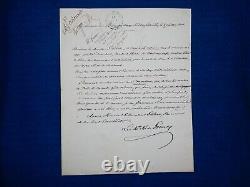
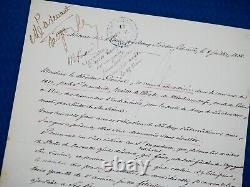
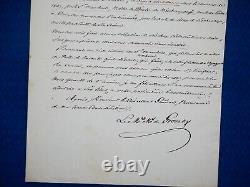
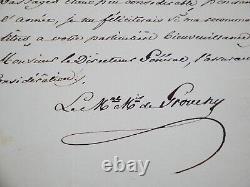
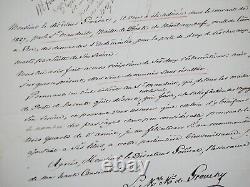
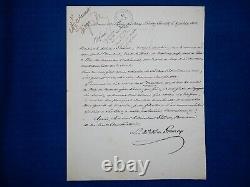
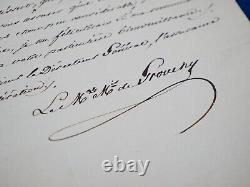
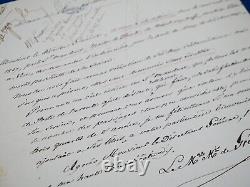
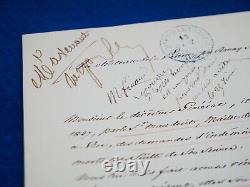
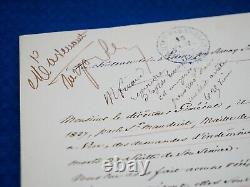
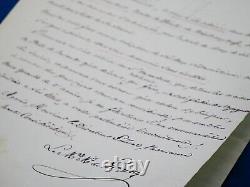

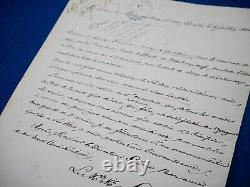
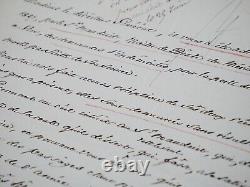
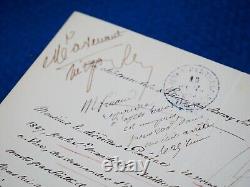
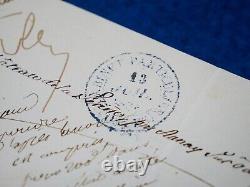


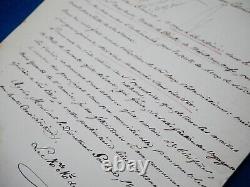
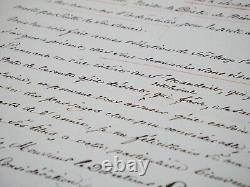
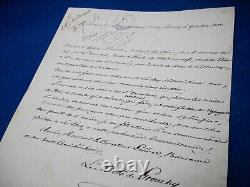


Autographed letter signed at the Château de la Ferrière, near Aunay-sur-Odon, Calvados, July 8, 1838. Mauduit, postmaster near Vire, regarding compensation for his horses, "dead as a result of his service." Taking a real interest in Mr. Mauduit, who, among all the postmasters on the route he serves, is the only one who satisfactorily performs his duties for travelers, and being able to assure you that he is far from benefiting from it, ... I would be pleased if my recommendation added to his credentials.
History remembers Emmanuel de Grouchy as the man whose absence was greatly felt at Waterloo: having set out to pursue Blücher with 33,000 men, it was in vain that the French army awaited him on the battlefield throughout the day of June 18, 1815... Grouchy became known during the Revolution as the chief of staff to General Hoche during the Vendée wars. In 1796, France launched an expedition to Ireland to support rebels against the United Kingdom. Hoche, followed by Grouchy, was part of it; but a violent storm shook the fleet and prevented the revolutionary forces from landing in Ireland.
Present at the defeat of Novi, with his new commander Moreau, on August 15, 1799, he was wounded fourteen times and then taken prisoner. He participated during the Empire in the Austrian Campaign of 1805 and then at Jena, Eylau, Friedland, where he received the Legion of Honor. Governor of Madrid in 1808, he suppressed the revolt of May 2 with the soldiers of Murat, then fought at Wagram. He went to Russia in 1812 in the ranks of Eugène de Beauharnais and, after another wound at Moscow, succeeded Murat as head of the sacred squadron during the retreat. After a busy activity during the campaign of 1814, he rushed to meet Napoleon and joined him during the Hundred Days.
He was made Marshal of France on April 15 (the last appointed of the marshals) after capturing the Duke of Angoulême, son of the Count of Artois, future Charles X. As is known, he was absent at Waterloo, which had consequences... He went into exile in America after the second abdication and returned to France in 1821.

